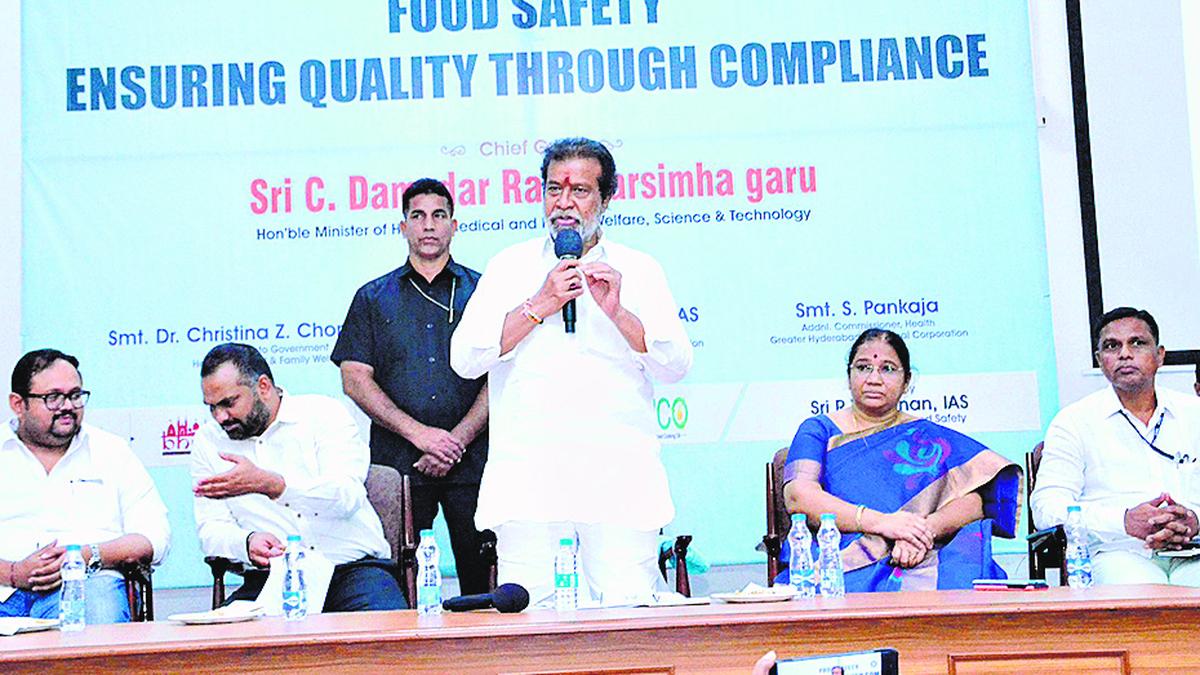
Telangana food safety department conducted over 4,600 inspections, levying fines of ₹78 lakh
The Hindu
Telangana Food Safety Department ensures food safety through inspections, fines, task forces, training programs, and new testing laboratories.
The Telangana Food Safety Department has emerged as a key player in ensuring food safety and hygiene across the State this year.
From January to November 2024, the department conducted 4,652 inspections across restaurants, upscale pubs, manufacturing units, eCommerce dark stores, warehouses, dairy units, and ice cream parlours in Hyderabad and other districts. These efforts resulted in fines amounting to ₹78 lakh and filing of 710 adjudication cases.
To intensify its efforts, the department formed a task force on April 16, comprising three food safety officers to conduct surprise inspections. Commissioner of Food Safety R.V. Karnan revealed that the task force has carried out 286 inspections so far, uncovering violations such as unhygienic food preparation, the use of expired ingredients, and non-compliance with documentation requirements. Suspicious and substandard food items worth over ₹15 lakh, including 19,000 litres of mislabelled bottled water and 2,500 kgs of adulterated ginger-garlic paste, have been seized.
Acknowledging the vast number of food establishments in Telangana, Mr. Karnan said the government approved two additional task forces in August, one for the Greater Hyderabad Municipal Corporation (GHMC) area and another for districts. These teams have already conducted multiple inspections, with 11 in GHMC and several others in Adilabad, Nizamabad, and Karimnagar.
This year, the department prioritised inspections at educational institutions and hospitals, examining hygiene standards in 516 schools, hostels, and PG accommodations. After identifying violations, cooks in these institutions were provided training and awareness sessions. Similarly, 84 hospital canteens, split between 45 government and 39 private facilities, underwent scrutiny.
With the rapid growth of the street food industry in the past decade, the department has turned its attention to street food vendors. Through Food Safety Training and Certification (FoSTaC) programmes, 1,500 vendors across four major districts received training, supported by corporate organisations and vendor associations. Additionally, special registration drives enabled 3,774 street food vendors to secure FSSAI registrations, informed Mr. Karnan.
To enhance food testing capabilities, the state has received approval for three new food testing laboratories in Hanamkonda, Mahabubnagar, and Nizamabad, along with a microbiology lab at the existing Nacharam facility. The mobile food testing fleet has also been expanded, with five new vehicles procured this year and 15 more added, bringing the total to 25.











